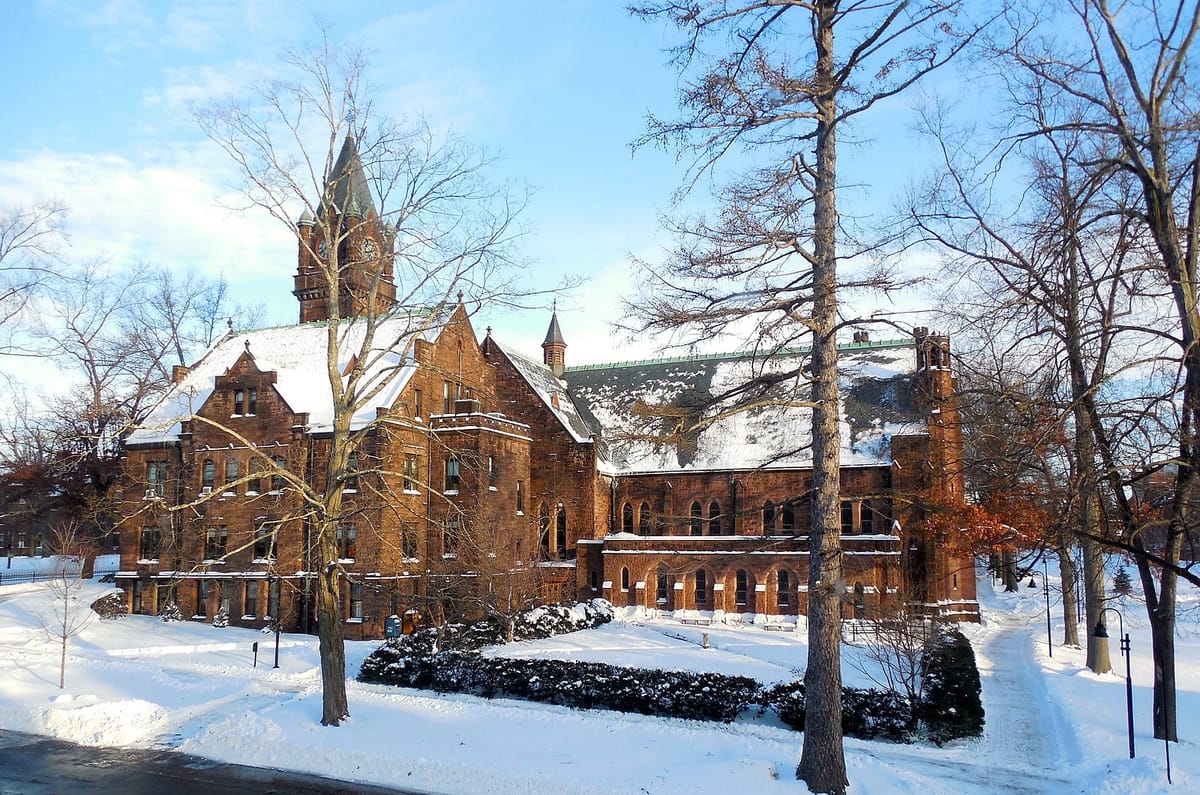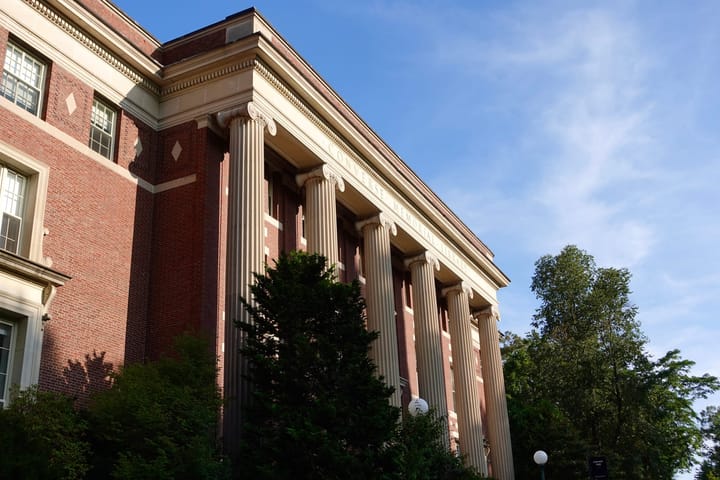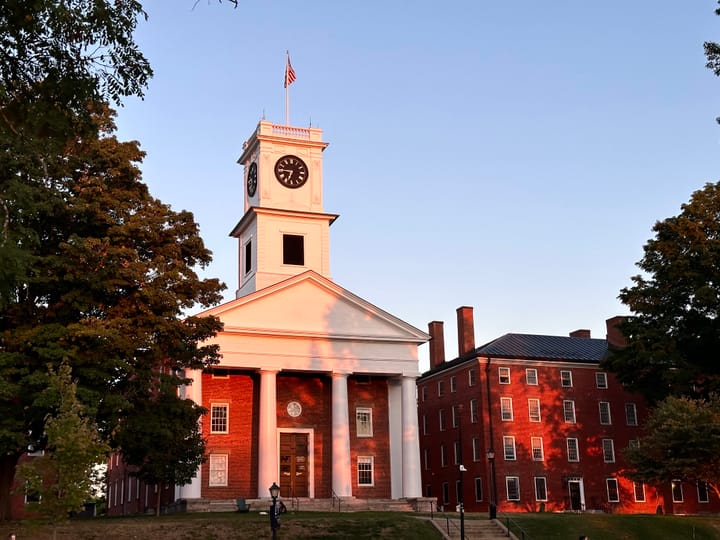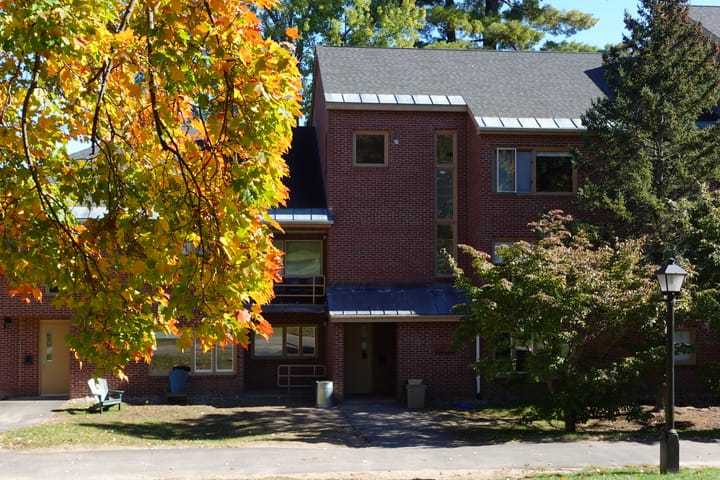Mount Holyoke College Workers Go On 24-Hour Strike
Nearly 200 staff members from Mount Holyoke College went on a 24-hour strike on Sept. 2 to advocate for wage compensation and new contracts. The strike comes after their previous contracts expired in August due to failed negotiations that began in March.

On Sept. 2, nearly 200 staff members from Mount Holyoke College went on a 24-hour strike on campus, advocating for higher wage compensation and new contracts to be established.
Staff members who participated in the strike were members of two unions: Service Employees International Union (SEIU) Local 32BJ, which represented 170 custodians, groundskeepers, and dining service workers, and United Automobile, Aerospace and Agricultural Implement Workers of America (UAW) Local 2322, which represented 23 housekeeping staff. Both unions have been negotiating contracts with Mount Holyoke College since March to provide a livable wage for its members, resulting in two rallies on campus before summer break. In addition, 32BJ also sought to provide its members of varying immigration status access to a legal fund for representation in civil cases.
However, no new contracts were signed before the expiration of previous ones in June and July due to a stalled bargaining process. According to Richard Sugrue, dining worker and a member of the 32BJ bargaining committee, the stalling was largely due to “little movement from the college.”
“[Mount Holyoke] College at no point said that there would be no wage increases ... but they were nowhere near what was required to bring our lowest paid members up to a living wage,” Sugrue said.
According to union representatives, at least 40% of members who work at Mount Holyoke College currently earn below the livable wage for Hampshire County, which is defined at $24.59 per hour by the MIT Living Wage Calculator. Mount Holyoke College had a tiered wage scale for union members, where the existing compensation system offers the same percentage of increase in wages across tiers, meaning that the lowest-paid workers receive the lowest amount of raise.
Despite a one-month extension, the previous contract still expired in August. As a result, employees began working this semester with no effective contract. This would mean no legal fund, no effort towards increased availability for workers’ paid time off, and “nowhere near a living wage” for the lowest-paid members, according to Sugrue.
Sugrue shared that the strike had always been something the union “had in its arsenal.” After sending out an open letter receiving hundreds of signatures without adequate response from Mount Holyoke College, Sugrue said the union “was forced to take [steps] closer and closer to the strike.”
32BJ’s Regional Communications Manager, Franklin Soults, added that when union members saw that Mount Holyoke College had the last bargaining date set at Aug. 19 and no more afterwards, they “knew [they] were headed for that strike” despite that being a difficult decision.
“No workers like to go on strike. It’s a difficult thing, and you’re sacrificing your pay and you're also putting those that you’re serving in a difficult spot,” Soults said.
“The workers genuinely care about the community of Mount Holyoke, so they didn’t want to put that strain on students, staff, and faculty. But without any movement, a reason that workers organize is to be able to insist that this is what they need,” he added.
Workers began striking before their earliest shift, around 5 a.m. The strike coincided with Mount Holyoke College’s convocation, where students voiced support for the union. Around 3 p.m., what Sugrue described as a “very impressive crowd” of students and dozens of faculty joined the workers at the front gate.
“We knew that amongst ourselves, all the members were standing strong together, but that was a reminder when we were joined by the students and the faculty that we had so much support from the community,” Sugrue said.
On Sept. 5, Mount Holyoke College reached tentative agreements with both unions, with a contract to be ratified this Wednesday. The new contract outlines annual raises for all union members that amount to a minimum of an 11% increase in wages, with the lowest-paid members receiving raises from 14% to more than 20%, including a $3 per hour increase during the first year. Members of 32BJ were also granted access to the legal fund that will provide free access to legal consultation for immigration-related matters, which Sugrue described as essential under the current political climate.
“I recognize the difficult decisions that led to the strike, as well as the commitment shown by all parties to return to the bargaining table with the shared goal of reaching resolutions,” wrote Mount Holyoke College President Danielle Holley in a public statement released on Sept. 9.
Sugrue also appreciated the support from Holley during the strike, who spoke with members and advocated to the administration on their behalf. “We're sorry that it took the strike to get to that point, but we did get the college to listen to us, to come back to the bargaining table, and ultimately, we’ve got very close to all that we were asking for,” Sugrue said.





Comments ()